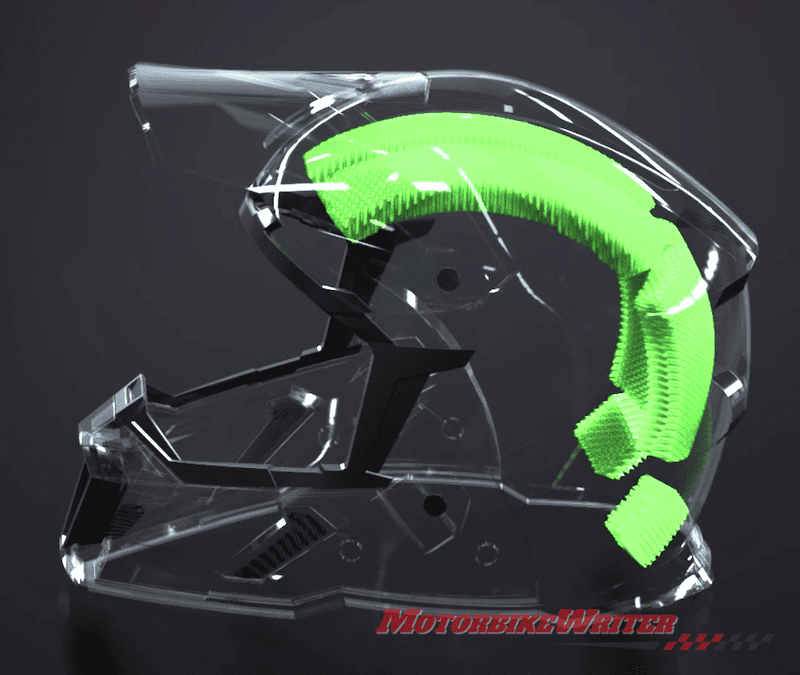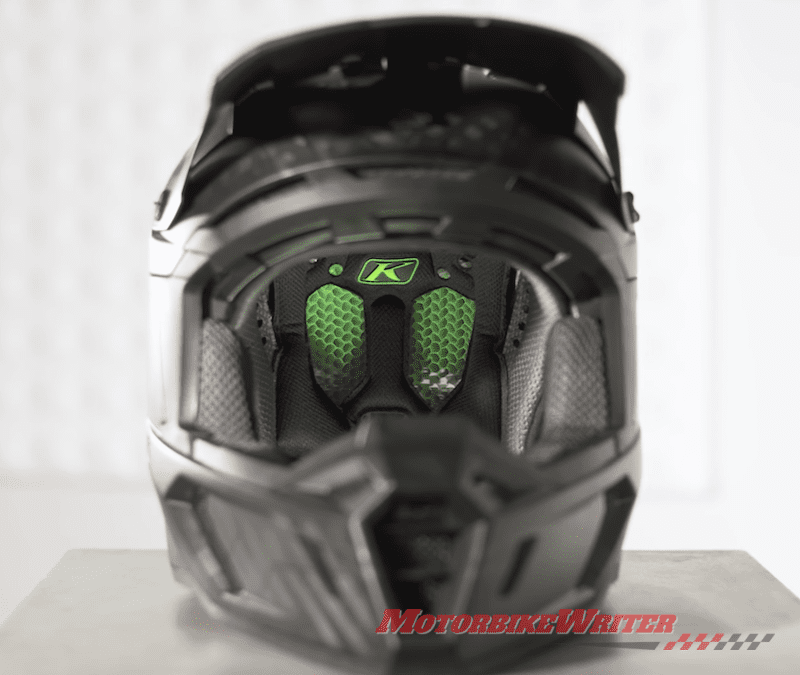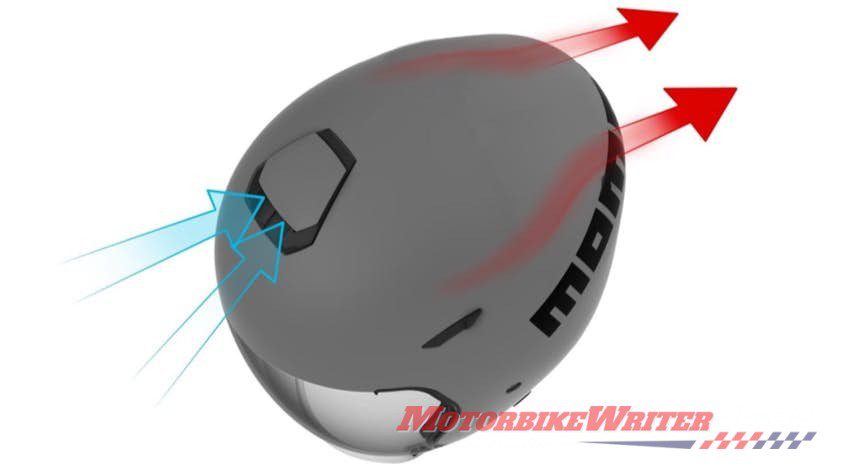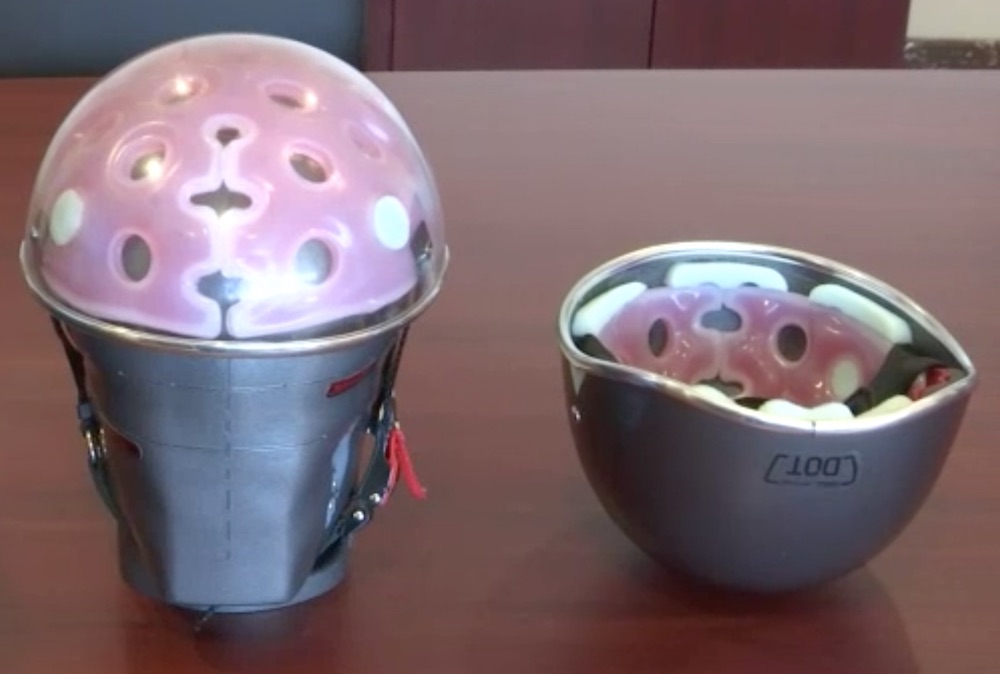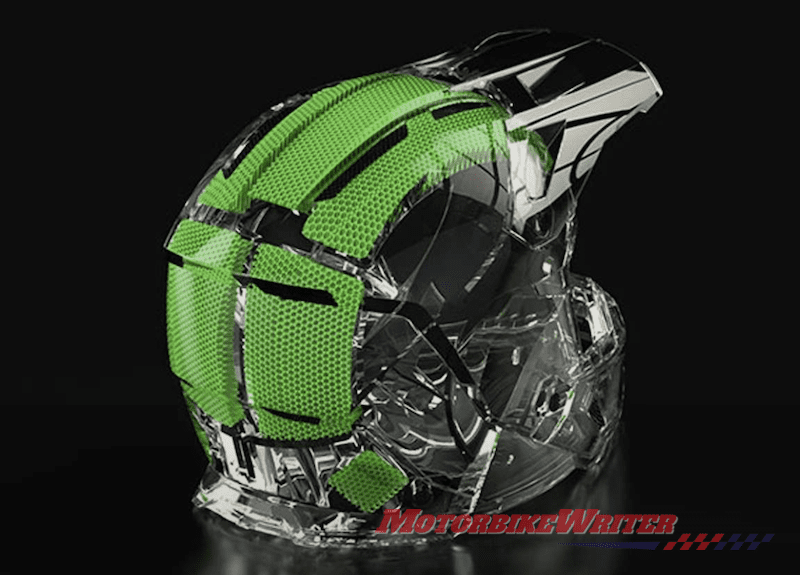A new Koroyd helmet liner being used by Klim is claimed to be safer, cooler and last longer than the industry standard polystyrene or polypropylene “EPS” foam.
Koroyd is basically hundreds of tiny tubes of plastic polymer that form a honeycomb around your head, absorbing more impact and allowing cooling air to circulate.
It is also not affected by heat and sweat like EPS which limits helmet life to about five years.
And it can be reused after small crashes as the liner material “bounces back”.
The Koroyd liner has been used in bicycle helmets.
Now American company Klim features the material in their F5 adventure helmet. It adds about 40% to the price.
Australia currently only gets the Klim Krios adventure helmet ($A750-$950). There is no word yet on whether the F5 with Koroyd will be coming here, but it is being Euro approved which means it would be legal.
How Koroyd liner works
While EPS is the industry standard in helmet lining, there are other helmet inventions that also claim to be cooler and increase impact absorption.
For example, Italian manufacturer Momo has a fan in the helmet that activates at low speed and American inventor Jason Kirshon has developed his Kirsh helmet with a lightweight silicone liner that helps reduce impact by up to 60% over EPS.
By the Koroyd liner puts these two elements together as well as improving the life of your helmet.
Koroyd tubes are designed to deform on impact to absorb the energy like EPS liners, but at a higher rate of 84% compared with 60%.
Not only does it absorb more impact, but it decreases the risk of a fracture, reacts better to direct or angled impacts and reduces rotational forces.
The impact is also absorbed at a smoother rate of deceleration, reducing shock to the brain.
Once a conventional EPS-lined helmet has been in a crash, even at low speed, the helmet is usually a write-off.
However, the material in a Koroyd liner is able to bounce back from minor impacts.
Since it is made up of hollow tubes, it also allows more air to circulate around your head which is claimed to reduce heat by 30%.
Klim
The technology seems to have been bought by Ohio company Klim (pronounced “climb”), a wholly owned subsidiary of Polaris Industries which makes Indian motorcycles.


